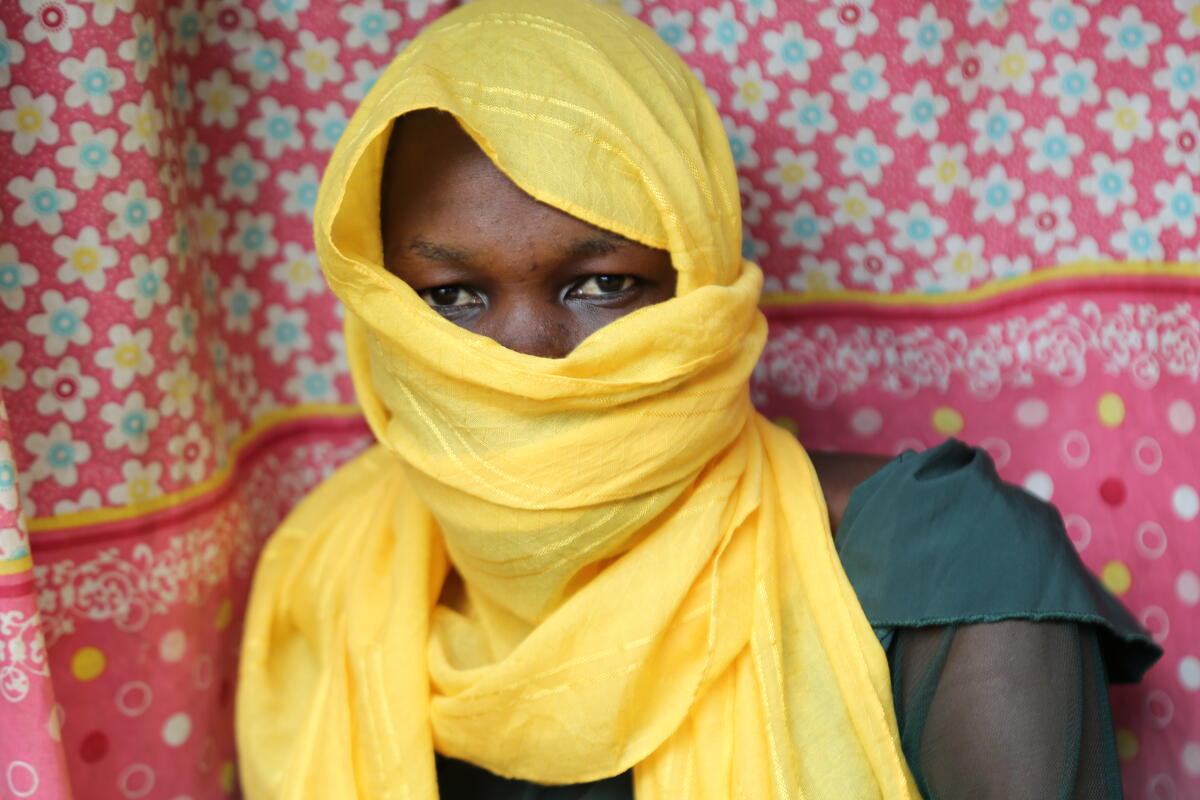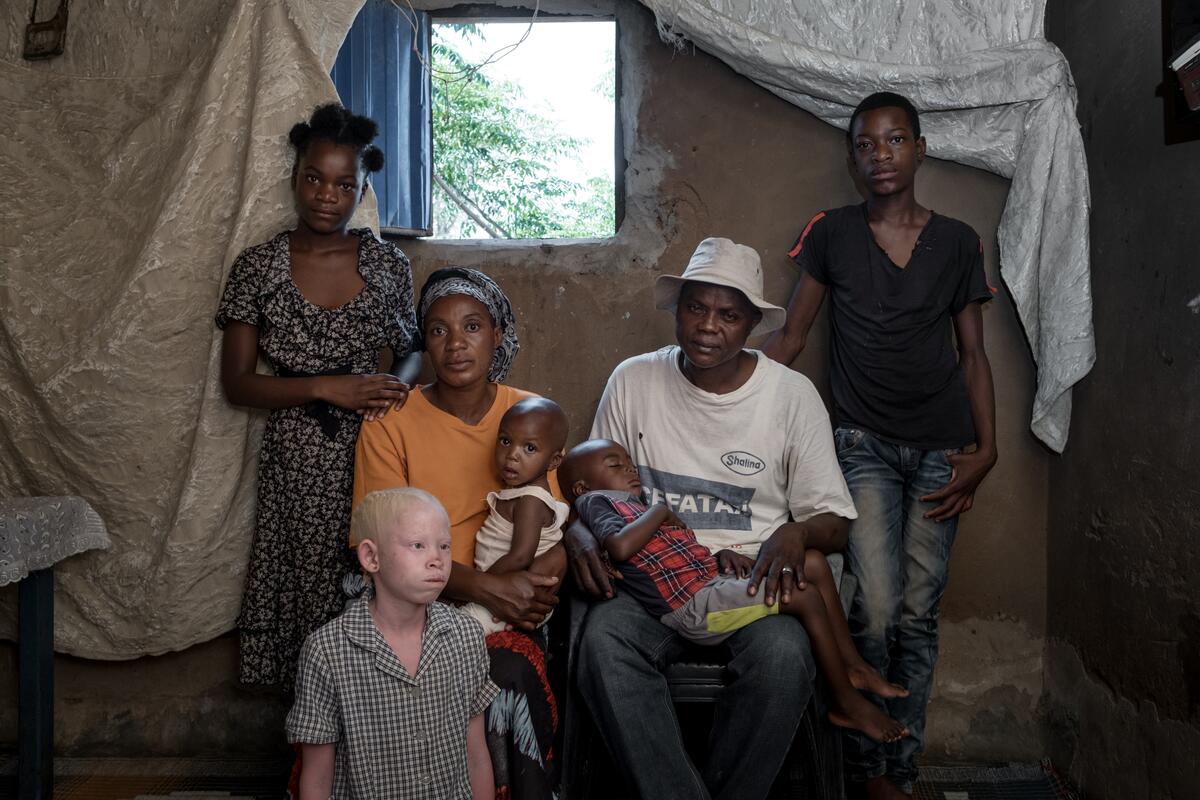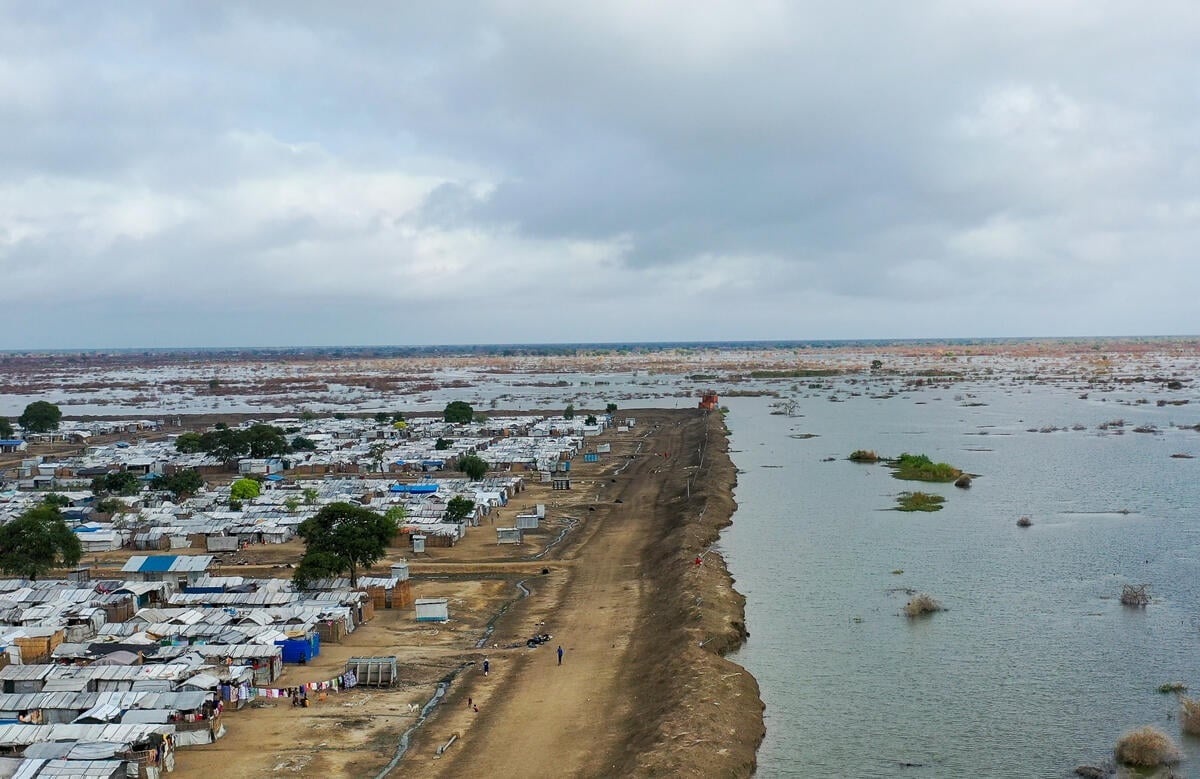Finding safety, yet little to eat

Finding safety, yet little to eat
DOSSEYE REFUGEE CAMP, Chad – One day after arriving from the strife-torn Central African Republic, 24-year-old Habiba sits quietly in a refugee reception centre in southern Chad and tries to breastfeed tiny Ramatou, the youngest of her four children. But the frail, two-month-old baby girl cradled in Habiba's thin arms gets no nourishment from her mother.
"I gave birth to my daughter in the bush, in the middle of the forest," says Habiba, herself exhausted and emaciated after a dangerous, three-month trek to reach safety in Chad. "I had nothing to eat and so I had no more milk."
Habiba tells me that, together with her husband and their children, she fled Bouguere, Central African Republic (CAR), when armed men attacked their village, killing indiscriminately. For three long months, the family walked through the bush trying to avoid danger, sleeping rough and searching constantly for scarce food and water. Ramatou was born one month into the journey.
"On the way, hunger made us weak," Habiba recalls. "The children were always hungry. We walked through regions where there was nothing to eat, no water. We were walking for kilometres to find water."
Late one afternoon in May, the family finally crossed the border into Chad, joining thousands of other refugees from CAR who arrive each month. Since January, some 14,000 refugees have arrived in southern Chad, bringing the total from CAR now living there to 90,000. Weak with hunger and thirst, but relieved to have finally found help, Habiba and family were transferred from the border by UNHCR staff to the Dosseye refugee camp. Although they have now found safety, their problems are not over.
Since January, funding shortfalls have forced the World Food Programme (WFP) to cut food rations in Chad's refugee camps by 60 per cent – part of wider reductions that now affect nearly 800,000 refugees in nine African countries. In Chad, daily food intake per refugee has been slashed from 2,100 kilocalories to 850 kilocalories. Instead of 13.5 kilograms of cereals for each refugee per month, the ration is now 4.5 kg. The monthly ration of dried beans, previously 3 kilograms per refugee, is now just 0.9 kg.
I've come here to learn more about how they are coping. Without enough to eat, newly arriving refugees are struggling to survive. Like Habiba and her family, many walked for up to four months to reach Chad. They arrive exhausted, sick and malnourished.
Since January, a lack of funding has forced the World Food Programme to cut refugee food rations in camps in Chad by 60 per cent – part of wider reductions that now affect nearly 800,000 refugees in nine African countries.
"I arrived yesterday at 3 p.m. and I have not yet seen a doctor," Habiba says. "Later I will have to go to the hospital with my child to check her situation."
But when Habiba goes to the health centre at the camp, she will not receive all the help she needs. Since the funding shortfall emerged, stocks of supplemental food for pregnant and lactating women have run short at the centre. This extra food typically includes staples such as flour, sugar and oil and was aims to ensure that mothers and babies receive proper nutrition during the critical periods before and after giving birth. Now, with the cut in basic food rations as well as the reduction in supplements, Habiba and her baby will struggle to survive.
"Before, WFP used to give specific food to all breastfeeding mothers for six months and to all pregnant women as of their second semester of pregnancy," says Joseph Mounkang, a nurse at the Dosseye health centre. "The food supplements consisted of 200 grams of flour, 125 grams of sugar and 25 grams of oil for every woman every day. This year, WFP does not have the means to continue and therefore they had to cut the food supplements. Now when women arrive at the health centre, we have nothing to give them."
Houriatou Issa, 32, and her son, Amadou, 13, both suffer from severe malnutrition and went to the health centre for help. Lacking any supplemental food stocks, the centre gave both mother and son packets of Plumpy'Nut, a peanut-based paste containing sugar, vegetable fat and skimmed milk powder enriched with vitamins and minerals. Normally, the centre only gives the paste to children under five, said Mounkang. Adults require additional supplements.
"I fled with my son," Houriatou tells me. "We were in the middle of the bush and we both fell sick. Now my child eats a little bit of rice and Plumpy'Nut. I don't have any appetite, but when I started to eat Plumpy'Nut, I gained a little energy again."
"If patients don't eat well, they are subject to infections," the doctor tells me. "And they cannot take medication without eating."
Staff at the health centre say they don't like giving the nut paste to adults, but it's all they've got. "This is the only solution we found to help them survive," says Mounkang. "We will ask WFP if they can't find a small quantity of food supplements to help these women."
The food shortage is also putting refugees with HIV/AIDS, malaria and other ailments at greater risk. Without proper nutrition, their treatment and recovery are jeopardised. "If patients don't eat well, they are subject to infections," says Dr. Mbakaou Ndeingar. "And they cannot take medication without eating. Medication should be taken after meals to facilitate absorption."





















